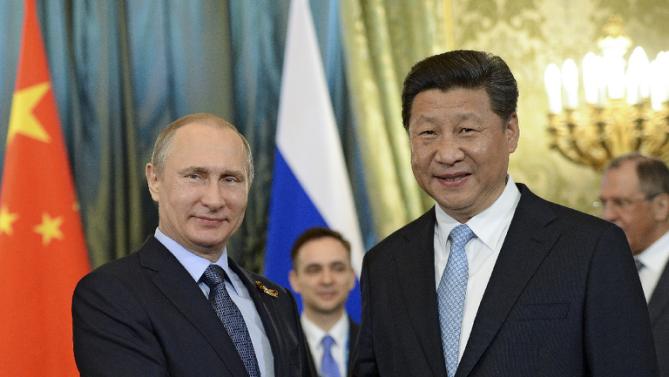Beijing and Moscow: Best Frenemies Forever?
On the eve of the commemoration of the Nazi German defeat, Xi Jinping flew to Moscow to attend the victory parade marking the 70th anniversary of the end of World War Two. “Attending the parade ceremony is very meaningful” said Vladmir Portyakov, Institute of Far East Studies of the Russian Academy of Sciences. “[Xi ’s] visit to Moscow, at this special moment, shows that relations and friendship between the two countries are not affected by the global situation” he continued. In the aftermath of Ukraine invasion and with the resulting Russian frozen relations with Europe, China’s President paid to Moscow his third visit since he assumed power in 2013.
The visit was part of a trip that brought Xi first to Kazakhstan, where Nursultan Nazarbayev has just been re-elected to lead the country, and later to Belarus, where the largest cooperation project between Beijing and Minsk was ratified on Monday.
China and Russia are apparently developing increasingly warmer relations, a clear sign of which is the first ever participation of about 100 soldiers of the People’s Liberation Army in the Red Square parade. An important step for Sino-Russian cooperation was the conclusion, in May last year, of a €360 billion energy export deal, alongside with the initiation of ambitious bilateral projects in the economic and financial sectors, of joint military maneuvers, and the announcement of further arms deals. Again, on the sideline of the last Presidential visit to Moscow, the two leaders announced as many as 32 separate bilateral pacts. However, despite reciprocal commitment, even Xi Jinping’s recent stopover did not help in making real and concrete implementation of the 2014 deals, regarding which very little progress has been done after the agreements were signed one year ago. This is especially noteworthy when talking about such a large-scale gas export agreement.
Behind the diplomatic façade, the reality of Moscow-Beijing building closer ties might not reflect a win-win situation, but a forced choice made by a Russia which is struggling to find new allies. The annexation of Crimea and the following Europeans export restrictions, spurred Russia to look east and recall its Soviet past. But this does not necessarily means that China is waiting its old friend with open arms, as Beijing is aware it can leverage Russia’s desperate need for credit and new markets and push forward its own interests. The stalemate over energy deals would then be explained by Putin’s reluctance to accept China’s tough terms, especially in relation to its Central Asia strategy. China’s One Belt and One Road project – sided by conspicuous investments and numerous bilateral deals with different countries in the region – envisions Central Asia as China’s back courtyard, therefore co lliding with Russia’s strategic interest in the area. For Russia, energy accords not only matter as natural resources account for half of the country’s budget, but they also embody Moscow’s pivot to the east. Brussels’ imposition of sanctions on Russian energy firms, like the giant Gazprom, has both accelerated Russia’s pivot to Asia, while, at the same time, hampered the capability of building the announced great infrastructure investments to bring natural resources to the east. “We should not forget there is still a whole lot of distrust between the two countries, […] ’BFF’ in this case stands for ‘Best Frenemies Forever’” said an analyst from the Hague Centre for Strategic Studies.
lliding with Russia’s strategic interest in the area. For Russia, energy accords not only matter as natural resources account for half of the country’s budget, but they also embody Moscow’s pivot to the east. Brussels’ imposition of sanctions on Russian energy firms, like the giant Gazprom, has both accelerated Russia’s pivot to Asia, while, at the same time, hampered the capability of building the announced great infrastructure investments to bring natural resources to the east. “We should not forget there is still a whole lot of distrust between the two countries, […] ’BFF’ in this case stands for ‘Best Frenemies Forever’” said an analyst from the Hague Centre for Strategic Studies.
Still, the two giants share a key strategic interest: disrupting the United States. Interestingly, when European countries – backed by the US – imposed sanctions on Russia after Crimea annexation, China remained neutral. After all, even if Russian violation of Ukraine sovereignty and integrity clashes with two principles the Middle Kingdom has thus far been advocating on the international stage, it can be paralleled with the recent Chinese territorial claims in the South China sea.





